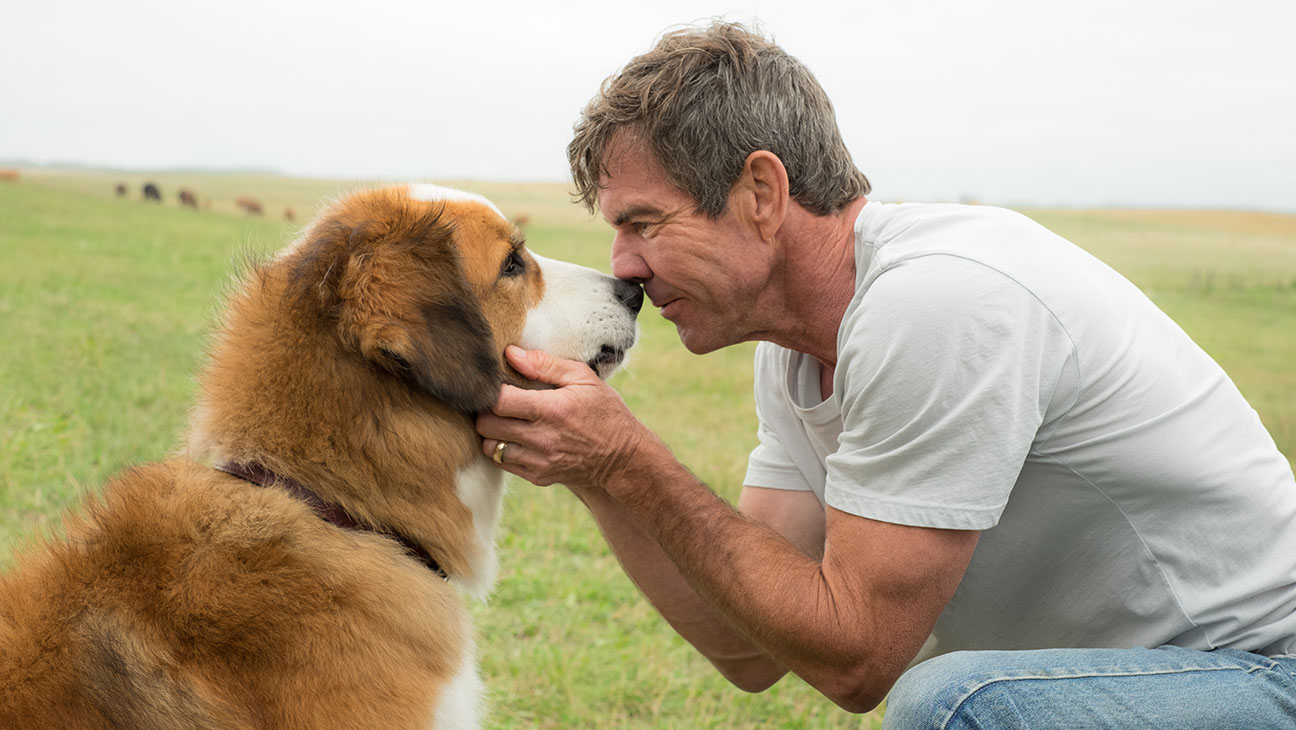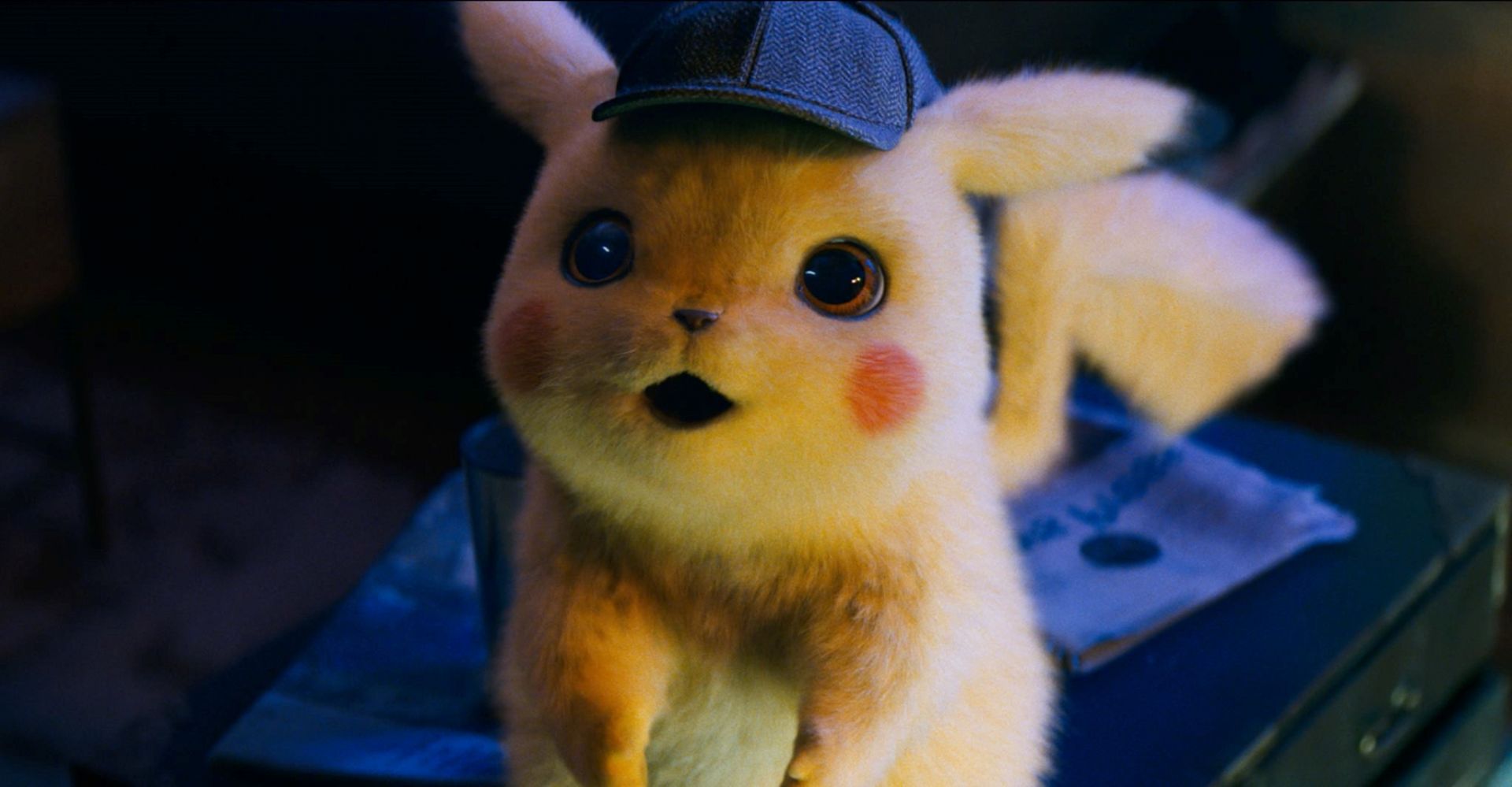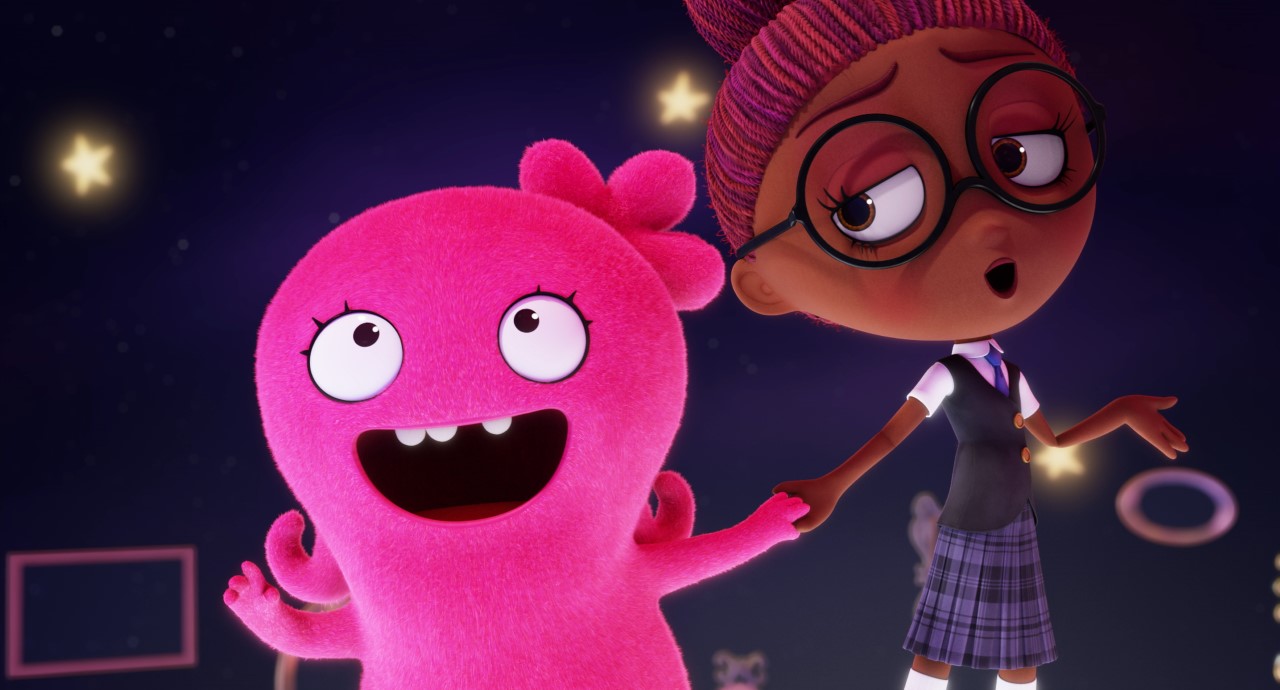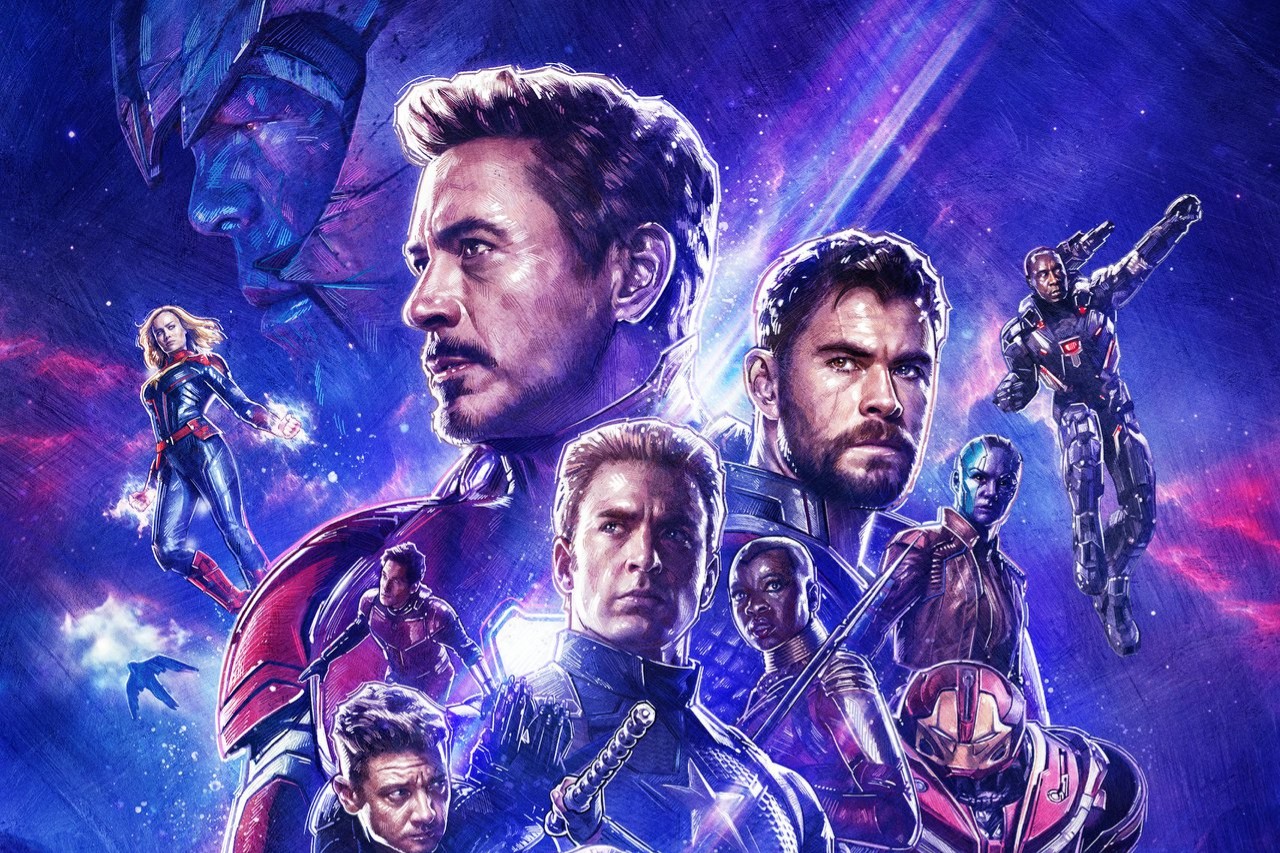
by Michael Foust | May 17, 2019
The movie A Dog’s Journey (PG) opens this weekend, following a dog named Bailey as he cares for a girl named C.J.
Bailey is a dog who wouldn’t change a thing about his life. He lives on a huge farm. He rides to town in a big pickup truck. His owners, Ethan and Hannah, treat him like their own child.
“I feel like the luckiest dog in the world.”
But not everything is rosy in Bailey’s world.
A few months ago, Ethan’s adult son died in a tragic car
accident, leaving behind a widow named Gloria to raise a baby daughter, C.J.
She and C.J. moved in with Ethan and Hannah, her in-laws.
And after a misunderstanding and argument, she moved out, promising never to
return.
“She’s my baby — not yours,” Gloria said before
leaving.
Then Bailey became terminally ill. Then he died. Then Gloria
started drinking, leaving C.J. to fend for herself.
It may sound like the lyrics to a honky-tonk tune, but this
story has a happy ending.
Bailey was reincarnated as another dog, Big Dog, and then
another dog, Molly, and then another dog, Max. Each time, he was sent to care
for C.J., who found his companionship priceless through her childhood and young
adult years.
The movie A Dog’s
Journey (PG) opens this weekend, starring Dennis Quaid (The Rookie) as Ethan, Marg Helgenberger
(Erin Brockovich) as Hannah, Betty
Gilpin (GLOW) as Gloria and Josh Gad
(Beauty and the Beast) as the voice
of Bailey.
The film is based on a book by W. Bruce Cameron and a sequel
to the 2017 film, A Dog’s Purpose
(2017), which also was based on a Cameron novel.
It is aimed at children and families and — apart from the
worldview — has few other non-family-friendly elements for Christian parents.
For lovers of pets, it’s a fun flick.
Yet the movie’s strong focus on reincarnation isn’t a small
problem.
Let’s examine the details.
Warning:
minor/moderate spoilers!
(Scale key: none,
minimal, moderate, extreme)
Violence/Disturbing
Minimal. We see C.J., as a toddler, walk into a fenced-in
area with an out-of-control horse. (She is rescued.) As a teenager, C.J. dates
a boy who grabs her arm when she tries to leave. He doesn’t hit her, but part
of her clothes tear. The same boy later chases her in his truck, resulting in
her crashing her car. (She survives, but the dog dies.) C.J. dates another boy
who grabs her arm when she tries to leave. (She has a tendency to date
irresponsible men.)
Sexuality/Sensuality/Nudity
Minimal. It’s implied that Gloria lives with one or two men,
although we never see them kiss. (The movie has no bedroom scenes.) When C.J.
asks her if one of her boyfriends is nice, Gloria responds, “They always start
off nice.” Gloria wears one or two outfits showing too much skin. C.J. kisses a
boyfriend passionately in the backseat; the scene cuts away. She moves to the
city, where she moves in with a boyfriend. When that doesn’t work out, a
platonic male friend lets her stay with him. She kisses a man at the end of the
film.
Coarse Language
None/minimal. One possible OMG. One other misuse of “God.”
At least three to four instances of Bailey referencing his or another person’s
“butt.”
Other Positive
Elements
The love that Ethan and Hannah show for Gloria and C.J. is
touching.
When Gloria moves out, Ethan and Hannah display patience and
never lose hope that the relationship will be restored.
Other Stuff You
Might Want To Know
Gloria is a young widow whose husband died. After he passed
away, she becomes an alcoholic and an irresponsible mother who often leaves
C.J. home alone at night while dating. Gloria often drinks glasses of wine.
C.J. impersonates her mom during a phone conversation and
lies in order to get Bailey. A few minutes later, she lies again. (Eventually,
she is caught in her lies, but her mother lets her keep the dog.)
C.J. goes to a party where beer is served. (She asks her
boyfriend to take her home.) Two teenagers exchange a package that looks like
drugs. C.J. is arrested but released.
We see several arguments. Gloria argues intensely with Ethan
and Hannah.
Life Lessons
We learn about the power of words — both positively and
negatively (Gloria moves out after she is offended by something Hannah says.)
We learn that bad choices lead to bad consequences (C.J.
opts to date an irresponsible man.)
We also learn about unforgiveness and bitterness (Gloria
moves out of Ethan and Hannah’s home. Later, C.J. moves out of Gloria’s home
and pledges never to return.) Yet we also learn about redemption. (The movie
has a happy ending.)
Worldview/Application
What is the purpose of dogs? Of pets? Bailey has an idea.
“Loving people is my ultimate purpose,” Bailey says.
Perhaps he’s onto something.
When you watch a joy-filled child chase a dog or an elderly
person pet one, it’s easy to agree with Bailey.
Pets, after all, are one of God’s great gifts to mankind.
Why else would He have created certain animals that are so easily domesticated
and that treat you like a king? They provide companionship. They remind you of
the simple pleasures of life. They make you … happy.
It’s just too bad that the story is wrapped in a
pro-reincarnation plot.
The Bible teaches that we die once, and only once (Hebrews
9:27, Matthew 25:46). The concept of reincarnation is unbiblical, for both
humans and animals.
And while a good case can be made that animals will be in
heaven (Isaiah 11:6, 65:25), the Bible is silent on whether specific pets will
be there.
What Works
Bailey’s interaction with people. It’s a joy to watch.
What Doesn’t
The scenes showing men getting physical with C.J. They don’t
belong in a film geared toward families.
Discussion
Questions
1. What does the Bible say about reincarnation?
2. C.J. initially did not want to forgive her mother. Have
you ever harbored feelings of unforgiveness? What does Scripture say about
forgiving others? Why is it hard sometimes?
3. Gloria and Hannah have an argument early in the movie.
Who was right? Who was wrong? Why?
4. Why is cohabitation (living together before marriage)
wrong — both biblically and practically?
Entertainment rating: 3 out of 5 stars. Family-friendly rating: 3.5 out of 5
stars.
Rated PG for
thematic content, some peril and rude humor.

by Michael Foust | May 10, 2019
REVIEW: ‘Tolkien’ has few faith elements but it still can teach us a lot
Ronald is a young British man with a brilliant mind and a
wild imagination.
He dreams about talking trees. He thinks about
fire-breathing dragons. He makes up silly words that belong in an other-worldly
language.
He would be a great novelist, but right now, he’s too busy
chasing a girl named Edith and having fun with his friends Geoffrey,
Christopher and Robert, who attend Oxford College with Ronald and are trying to
find their way in the world. One man wants to be a painter. Another, a poet.
They’ve known each other since boyhood and desire to change the world “through
the power of art.”
“We should form a brotherhood,” one of them says.
Thus, this male foursome swears their allegiance to one
another with the goal of mutual support as they enter college and the real
world.
But then Ronald gets in trouble and loses his scholarship.
And then their country goes to war, forcing them onto the battlefield.
Will they survive bullets and bombs long enough to make an
impact on the world?
The biopic Tolkien
(PG-13) opens this weekend, telling the story of author J.R.R. Tolkien in his
childhood, teenage and young adult years before he penned the classics The Hobbit and The Lord of the Rings. It stars Nicholas Hoult (X-Men: Apocalypse) as Tolkien and Lily
Collins (Les Miserables, 2019) as
Edith, and was directed by Dome Karukoski, a Finnish filmmaker.
The film shows Tolkien and his brother growing up under the
care of their mother, a widow. But then she dies, they are placed in the care
of a Catholic priest, who puts them in a home for orphans. Tolkien becomes a
standout student at a distinguished school for boys and then is accepted into
Oxford.
The movie faced pushback in April from Tolkien’s family, who
released a statement saying they “did not approve of, authorize or participate
in the making of this film.”
“They do not endorse it or its content in any way,” the
statement said.
But Karukoski told me leaving the family out of the
production was intentional. Otherwise, he said, the film may stray away from the
facts and deliver a plot too friendly to the subject.
The movie has little-to-no discussion about God and theology—a
fact that will disappoint some Tolkien enthusiasts—but it nevertheless shows
how he developed some of his basic ideas for The Hobbit and The Lord of
the Rings.
The film’s themes, Karukoski said, are love and friendship.
“There’s only so much time we have left (in life), and we
have to choose what to do with it,” Karukoski told me. “I would hope that
people would spend more time with their friends and inspire each other.”
The film has its enjoyable moments, yet it’s mostly slow and
likely confusing for non-Tolkien fans. If you know nothing about Middle Earth,
then this film likely isn’t for you. Still, it ends on a high note.
Warning:
minor/moderate spoilers!
(Scale key:
none, minimal, moderate, extreme)
Violence/Disturbing
Moderate. The film shows Tolkien in a World War I trench and
then on a battlefield. We see shots fired and men fall, presumably dead. We see
bombs exploded. We see a pile a bodies and a large pool of blood. At school,
Tolkien gets into a fight during a rugby match. Later, he hits a friend who was
berating him.
Sexuality/Sensuality/Nudity
Minimal. Tolkien’s painter friend shows copies of paintings
of nude women to his friends. “What I need is live models. Not much chance of
that, of course.”
Tolkien and Edith kiss, twice.
The film implies that one member of the brotherhood is gay
(The word is never mentioned, and he never acts on his feelings).
Coarse
Language
Minimal. A– (1) and a couple of “for G-d’s sake.”
Other Stuff
You Might Want To Know
Tolkien and his friends drink several times. Once, he gets
drunk and stumbles into an open area at night, shouting at everyone.
Life Lessons
Among the lessons in Tolkien:
the impact of a mother (Tolkien’s mom), overcoming tragedy (Tolkien following
her death), building up one another (Tolkien and the brotherhood) and the bond
between friends (the brotherhood).
Worldview/Application
Tolkien’s mother, Mabel (Laura Donnelly), is on screen only
a few minutes, but her impact on Tolkien is significant. She introduces him to
the love of reading. She sparks his imagination. We see her read books to Tolkien
and his brother at night as a spinning lantern projects images on the walls.
Tolkien’s imagination goes wild. In real life, she died at the age of 34, but
her impact is still reverberating around the world through his works.
It’s true that the film has no “God talk,” but I suspect the
human writers of the New Testament would applaud its portrayal of brotherly
love—at least most of it. Ronald and his friends support one another, no
matters the circumstances. They build up one another. They challenge one
another. They inspire each other. Too often, men put up a facade. They rarely
mirror the brotherly love commanded in Scripture (Rom. 12:10, 2 Pet. 1:7) and
seen in Tolkien.
Still, it’s tragic that the film implies one of Tolkien’s
friends was gay, without evidence. Can’t men have a close bond without the
world imposing its twisted views of sexuality?
What Works
The focus on the bond between Tolkien and his friends. The
ending.
What Doesn’t
The lack of faith content.Yes, the movie’s focus on brotherhood was a wise choice, but some discussion about his Catholic
beliefs would have been nice (And if you’re curious, C.S. Lewis isn’t mentioned
in the film. He and Tolkien met after the events that are portrayed).
Discussion
Questions
1. Why are friendships important for Christian growth? For
living life?
2. How did Tolkien and his friends model biblical
friendship? How did they influence one another?
3. What impact did Tolkien’s mother have on him?
4. What was your reaction to Tolkien’s friend being portrayed
as gay?
Entertainment rating: 2.5 out of 5
stars. Family-friendly rating: 3.5
out of 5 stars.
Rated PG-13 for some sequences of war violence.
Photo credit: Fox Searchlight

by Michael Foust | May 10, 2019
The film Pokémon: Detective Pikachu (PG) opens this weekend. It’s based on the video game and trading card series popular among children.
Tim Goodman is a young, determined man, living in a world
very different from anything you and I have seen.
In Tim’s world, creatures known as Pokémon roam the forests.
They are a cross between a stuffed animal and a toy and sometimes as cute as a
koala bear.
Tim, though, doesn’t have time to chase Pokémon for fun.
He’s on board a train to Ryme City, the only place on the planet where humans
and Pokémon co-exist. In Ryme City, every person has a Pokémon—it’s like a pet—and
Pokémon even perform valuable tasks (like fighting fires).
Tim’s estranged father lived in Ryme City until recently but
died in a tragic car accident. Tim is returning to claim his possessions and
tie up loose ends.
But then his father’s Pokémon—a yellow furry fuzzball named
Pikachu—latches onto Tim. Even crazier, Tim understands every word Pikachu
says.
And then the story grows stranger. Pikachu tells Tim his
father isn’t dead and that he may have been captured by an evil group that’s
trying to destroy Ryme City and the Pokémon, too.
Can Pikachu and Tim find his father and perhaps also stop
this deadly scheme?
The film Pokémon:
Detective Pikachu (PG) opens this weekend, starring Justice Smith (Jurassic World: Fallen Kingdom) as Tim,
Ryan Reynolds (Deadpool, X-Men Origins:
Wolverine) as Pikachu and Kathryn Newton (Three Billboards Outside Ebbing, Missouri) as Lucy, a young woman
who works at a television station and helps Tim break the case.
The film is a mixture of live action and CGI and based on
the video game and trading card series popular among children. Both have
sparked controversy among Christian families for their inclusion of magic and
Eastern spirituality.
In Pokémon Detective
Pikachu, though, we get a worldview not much different than what’s found in
Marvel and Star Wars film. There’s no occult-like magic. Instead, it’s a few
animals with superhero-like powers.
But even if we give Detective
Pikachu a pass on the worldview question, it has content that pushes the
boundaries for a PG film aimed at small children. It has more violence and
disturbing content than what is seen in PG flicks like the Lego Movie or Despicable Me
series. It has more language than what is found in most children’s films, too.
It left me wondering: What is the target audience?
The plot, though, is interesting, and the story has enough
twists and turns to keep moviegoers interested. I—surprisingly—enjoyed it.
But is it OK for children? Let’s take a look.
Warning:
minor/moderate spoilers!
(Scale key:
none, minimal, moderate, extreme)
Violence/Disturbing
Moderate. The film opens with a scene showing a freakish
alien-like creature escaping a laboratory. Seconds later, a car crashes,
apparently killing the occupant. Several friendly Pokémon inhale a gas that
causes them to turn evil and mean. They chase Tim at night in a scene
reminiscent of Gremlins. Tim, in his
investigation, corners a mime and pretends to torture him by pouring gas on him
and lighting a match. We see a Pokémon MMA-type battle between a fire-breathing
dragon and Pikachu. We experience several Jurassic
Park-type jump scenes when Tim and Lucy break into a laboratory. Tim and
Lucy are nearly killed when the mountains and land fold in half in a science
fiction-type scene. A Ryme City parade goes haywire when the Pokémon breathe a
purple gas and turn evil (The gas causes the souls of the humans to enter the
Pokémon).
Sexuality/Sensuality/Nudity
Minimal. Pikachu makes several jokes with double meaning. He
tells Tim as they enter the apartment: “I never do this. I’m not that type of
Pokémon.” He tells Tim to “grow some berries.” Tim says he’s attracted to
Lucy.
Coarse
Language
Minimal. But still too much for a children’s film. OMG (3),
h-ll (2), d–n (1). We also hear an unfinished “holy sh–,” “nipples,” “geez”
and “shove it.”
Other Stuff
You Might Want To Know
Moviegoers will either love Pikachu’s sarcasm or hate it.
We also hear about “Pokémon evolution.”
Life Lessons
Detective
Pikachu delivers
lessons on regret (Tim and his father), parental love (Tim’s father), and
second chances (Tim). We also learn that looks can be deceiving (several
characters who aren’t what they seem).
Worldview/Application
We never learn how the Pokémon get their powers. Apparently,
they’re born that way.
Yet the best message from Detective Pikachu is about family. Tim’s mother died when he was
younger, forcing him to make a choice between living with his grandmother or
father. He chose the former. But when he arrives in Ryme City, he has regret.
He finds an unmailed card from his father with a loving note (“I can do better
if you give me a chance”). The more he learns about his dad, the more he wishes
he could go back in time and make a different decision. And when he learns that
his father may still be alive, he sets out to find his dad—and perhaps get that
second chance in life.
Sponsors
Burger King. Pillsbury. 7-Eleven. Menchie’s Frozen Yogurt.
Delta.
What Works
The fatherhood angle. The chemistry between Tim and Pikachu.
What Doesn’t
The adult-centric double-meaning jokes. The language. It’s a
kid’s movie. Keep it that way.
Discussion
Questions
1. Have you ever wanted a second chance at something?
2. Why did Tim have regret?
3. What unique qualities can a father provide that a mother
or grandmother cannot?
4. What do you think about the debate about Pokémon?
Entertainment rating: 3 out of 5 stars. Family-friendly rating: 3.5 out of 5 stars.
Rated PG for action/peril, some rude and suggestive humor, and thematic elements.
Photo credit: Warner Bros.

by Michael Foust | May 3, 2019
Moxy is a three-toothed, odd-looking doll who lives in a
world of misfits.
Her home is “Uglyville,” a place for stuffed animals that
aren’t perfect. Some have one eye. Some have three. Either way, they’re too
“ugly” to sell. Supposedly, no one would buy them.
Moxy, though, doesn’t view herself as ugly. In her world,
“ugly” is a good word. She embraces her flaws. Besides, she’s beautiful on the
inside—joyful, optimistic and bubbly.
Life is perfect. Well, almost. Moxie’s goal is to be owned
by a loving child. Uglyville’s mayor, Ox, tells her kids are a myth.
“The big world and the children do not exist,” he says.
But Moxy doesn’t give up. One day, she and a few Uglyville
friends journey outside of town and discover another city. It’s called the
Institute of Perfection, where every toy looks and acts perfect. Their leader,
the blonde-haired Lou, says they are
perfect. He even has a song about it.
Of course, the people from Uglyville aren’t welcome in the
land of Perfection.
It’s a clash of worldviews: Moxy and her embrace of
imperfections vs. Lou and his worship of beauty. Which side will prevail?
The animated film UglyDolls
(PG) opens this weekend, starring Kelly Clarkson as Moxy, Blake Shelton as Ox,
and Nick Jonas as Lou. Pitbull, Ice-T and Gabriel Iglesias also have
roles.
The film is based on a line of plush toys and follows in the
footsteps of other movies—such as Angry
Birds, the Lego series and My Little Pony—that build a story around
games or toys.
In UglyDolls, Lou
tells Moxy and her friends to leave his city, but they opt to stay and train
alongside the other toys to chase after perfection. Soon, though, one of the
Perfection dolls, Mandy, befriends Moxy and the others. Mandy has glasses—a
no-no in her city—and questions Lou’s desire to change everyone “from pretty to
perfect.” Moxy and Mandy lead a rebellion.
UglyDolls has a solid core message but it has
its own, well, flaws. It’s a bit slow
at times. It also has one or two worldview problems (see below).
Still, my 7-year-old daughter said she liked it.
UglyDolls is labeled a musical, although most
of minutes are filled with dialogue.
Warning:
minor/moderate spoilers!
(Scale key:
none, minimal, moderate, extreme)
Violence/Disturbing
Minimal. The UglyDolls get stuck on a recycling center
conveyer belt and are nearly torn to pieces. Lou gets hit and kicked a few
times in the film’s finale.
Sexuality/Sensuality/Nudity
None.
Coarse
Language
None. We only hear gosh (3), butts (1) and the awkward
phrase “oh my doll” (3).
Other
Positive Elements
One of the dolls shows mercy to a Perfection doll who
bullied her. Moxy’s optimism is contagious to the other dolls. She does not get
discouraged.
Other Stuff
You Might Want To Know
A doll named Lucky gives Moxy “daily numbers.” He also
jokingly tells her to “find your own truth.” Later, Moxy repeats that phrase in
a speech to the dolls. Lou bullies the Uglyville dolls.
Life Lessons
UglyDolls provides lessons on optimism
(Moxy), determination and perseverance (Moxy) and the definition of beauty
(several characters—see below),
Worldview/Application
UglyDolls has a core message I can fully
endorse: Beauty isn’t skin deep. Inner beauty is what truly matters.
Imperfections make you you. It’s
heartbreaking to watch Mandy sing, “If I could choose who I could be, I’d
choose a whole new me.” Here, Moxy has it right: “Our flaws make us who we
are.” And: “It’s our differences that make us shine.” That’s a home run
message. No one is flawless (Google “models without makeup” if you want proof).
Moxy learns perfection is not obtainable.
“Perfect is not real,” director Kelly Asbury told WordSlingers this week. “If you strive
for perfection, by someone else’s definition, you will never achieve it.”
But Moxy’s worldview is incomplete. After all, what is the
foundation for her beliefs? She soon answers that question. It’s herself. “You
define yourself. You and no one else,” she sings. Later, she tells everyone:
“We found our own truth.” Maybe she means her “own truth” of beauty, but the
Christian worldview provides a better answer.
The Bible teaches we are valuable because we are made in the
image of God. Our identity is found in Christ.
God’s definition of beauty focuses on the inside. I often
ask my daughter, “What is the definition of beauty?” She always answers it the
same way: “It’s to love God and to love others.” UglyDolls nibbles at the correct answer. It’s up to Christian
parents to fill in the blanks.
Sponsors
Hardee’s, Carl’s Jr., Hasbro and Cold Stone Creamery are
four of the most well-known partners.
What Works
The music. I could have used more of it, though.
What Doesn’t
The film’s name is UglyDolls.
It’s based on a line of plush toys with the same name. I’m uncomfortable with
the word “ugly” in a toy line. The film’s message does help take the sting out
of that word, but in my home and among my four children, “ugly”—when addressing
appearance—is a bad word.
Discussion
Questions
1. What is the definition of beauty?
2. How does the world define beauty? How does God define
beauty?
3. Do you agree with Moxy that “our flaws make us who we
are”?
4. Moxy says, “We found our own truth.” What does she mean?
Define truth.
5. Can we strive for worldly beauty without being vain?
Entertainment rating: 2.5 out of 5
stars. Family-friendly rating: 4.5
out of 5 stars.
UglyDolls is
rated PG for thematic elements and brief action.

by Michael Foust | Apr 26, 2019
If you’re concerned about Endgame’s content but don’t want to read spoilers, then this review is for you.
When I entered the theater this week to watch Avengers: Endgame, I knew very little about the plot.
Yes, I had watched the trailer, and, yes, I had seen its
predecessor Infinity War, but I
hadn’t read any reviews, stories or—aghast—nuggets
from rumor sites.
I treat Marvel movies just like I treat Christmas presents
under the tree. I don’t want to know what’s inside.
Thus, if you’re a parent who’s curious if Endgame (PG-13) is appropriate for
children, then keep reading. There are no spoilers ahead. There’s even a
spoiler-free examination of the worldview.
First, though, let’s set the table by recapping 2018’s Infinity War. It brought the various
elements (the Avengers and the Guardians of the Galaxy) of the Marvel
Cinematic Universe together to fight the supervillian Thanos, who was hunting
for the universe’s six infinity stones in order to gain God-like powers. His
goal was to wipe out half the universe’s population because, he said, there
weren’t enough resources to support all of us.
Thanos did obtain that final stone at the end of Infinity War and followed through with
his pledge. He also wiped out many of our beloved heroes. Among the survivors
were Iron Man, Captain America, Thor, Black Widow and Bruce Banner.
That’s where Endgame
begins. It’s the 22nd film in the Marvel Cinematic Universe and also the
longest, at three hours, one minute. Visit the restroom before entering … and
go easy on the sodas.
(Scale key:
none, minimal, moderate, extreme)
Violence/Disturbing
Moderate. Endgame has
plenty of hero-on-villain fighting, as is expected from a Marvel film, but it’s
not as violent or bloody as last year’s film Black Panther. Here are some generic details: A character’s arm and
head are chopped off (it happens quick and semi-off screen). Two people duel
with swords; one gets his throat slashed (we do see some blood) and is killed.
One character undergoes mild torture. We see machine guns fired during a heist.
Missiles launch. Stuff blows up. The film includes a major battle (as does
every superhero film) with lots of bloodless violence.
Sexuality/Sensuality/Nudity
None. But we hear characters reference “America’s a–” twice
in reference to a male character’s derriere.
Coarse
Language
Moderate. Endgame has about 25 coarse words: h-ll (6), s–t
(5), a– (5), OMG (3), stand-alone misuse of “God” (3), GD (2), d–n (2),
p-ssed (1), SOB (1) and Jesus (1). We hear a non-human say something that
sounds a lot like an f-word.
The profaning of God’s name is particularly disappointing,
as is the misuse of “Jesus.” Infinity War
had neither word. (If you’re curious: Hawkeye says GD once and misuses Jesus’
name. Ant Man says GD, too).
We also hear the normally straight-laced Captain America
curse twice (SOB and s–t).
Other Stuff
You Might Want To Know
There is no mid-credit or post-credit scene.
Worldview/Application
The Infinity
War/Endgame story involves a world where magicians, sorcerers, gods,
heroes, villains and aliens battle for survival. The God of the Bible is never
mentioned—at least, not in a good way—but His attributes are at the center of
the plot. That’s because Thanos wants to be all-powerful and all-knowing.
Thanos’ evil desire borrows a page from Scripture. Before he
was the prince of evil, Satan was a heavenly being (Isa. 14:12) who was cast
out because of his desire to be god. Later, Adam and Eve sinned because of
their desire to be like God (Gen.
3:5).
Of course, those wicked desires exist within us, too. We
want to be the master. We want the power. We want to be God. By definition,
that’s what sin is. When we sin, we might as well be shouting at God: Your commandments are wrong. I’m in charge.
That’s why we need a Savior.
Movie
Partners
Endgame is a cultural event, so it’s not
surprising it has a lot of partners. Among them: McDonald’s, General Mills,
Coca-Cola and Geico.
Indeed, McDonald’s already is selling Endgame Happy Meals. I’m a little uncomfortable pairing a PG-13
film aimed at teens and adults with a toy-themed meal for impressionable
3-year-olds.
Thumbs Up or
Down?
Endgame—despite a few content concerns—is
fun. It’s better than Infinity War
and ranks near the top of my favorite Marvel films. Moviegoers in my theater
applauded multiple times. I wish I could say more, but I promised a
spoiler-free review, right?
Spoiler-Free
Discussion Questions
1. Have you ever wished you were God?
2. What would you do if you had God’s powers?
3. If you could look into the future, would you?
4. If we had God’s powers, would we be tempted to use them
for evil?
Entertainment rating: 4 out of 5
stars. Family-friendly rating: 2.5
out of 5 stars.Endgame is rated PG-13 for violence/disturbing images and some strong
language.




